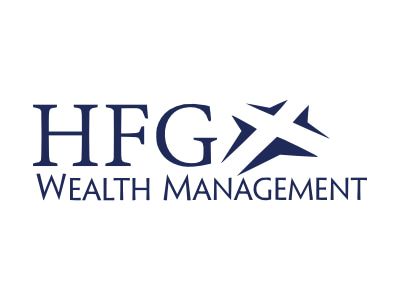- Categories :
- More
Strategic Wealth Transfers: Minimize Tax Exposure and Preserve Your Legacy

We’re often sold the idea that money buys security and establishes generational wealth. This couldn’t be further from the truth, and you don’t need to look far to see evidence of this fallacy. Celebrities, musicians and star athletes frequently make and lose millions while serving as a cautionary tale: it doesn’t matter how much you have if you don’t have the tools and guidance to manage it wisely.
For affluent individuals, financial stewardship is often complex, involving a myriad of tax planning considerations. While comprehensive estate planning is of the utmost importance, many of our clients find this alone to be insufficient. They need a system that not only leverages their assets effectively but equips their heirs to manage their inheritance through wealth education and governance. What’s needed is full-scale tax planning to establish their legacy today and safeguard it for tomorrow.
Why Traditional Estate Planning Isn’t Enough
For many, wealth isn’t just a ticket to a life of luxury. It represents opportunities for your children and grandchildren. Gifting your loved ones with financial freedom isn’t as simple as you may think. Studies have found that approximately 90% of generational wealth is lost by the time it reaches the third generation. The reason for this staggering statistic is complex, but it includes disparities in wealth governance, insufficient financial literacy, and an unclear or disjointed vision for the family’s long-term legacy. An estate plan may cover the “what,” but it often fails to provide heirs with the “why” and the “how.”
How to Create a Well-Rounded Legacy Strategy
When developing financial strategies for affluent families and individuals, we focus on three areas to build a solid foundation: minimize tax for yourself now so you can maximize what you leave behind, prioritize tax planning in wealth transfers, and help the next generation thrive through guidance and opportunities for involvement. Here are some practical ways to incorporate these pillars.
- Review and plan annually. When minimizing your tax liability, it’s easy to focus on year-end gifting and other write-off opportunities. Still, it’s a mistake not to consider your tax planning needs year-round. An annual review, whether at the start of the year or around tax season, is a crucial aspect of developing a thorough strategy to minimize your taxes and implement estate-planning best practices. Don’t wait until half of the year has passed to make wise decisions for the year ahead. Talk to your financial advisor and tax planner about adjusting to tax-free investments[1] , pertinent tax code adjustments, retirement [2] Roth and 401(k) contributions (especially for business owners), cash-flow management, and how to time major financial decisions.
- Implement advanced gifting strategies when passing wealth to beneficiaries. Waiting until after you’ve passed to transfer wealth may not allow you to take advantage of certain tax strategies, subsequently reducing the value of what you leave to your loved ones. For instance, you can take advantage of the annual gift tax exclusion by gifting up to $19,000 each to an unlimited number of individuals for the 2025 tax year. Recipients don’t owe taxes on gifted amounts and don’t have to report it as income. This provides a tax-free inheritance deposit while reducing your taxable estate, as long as you don’t exceed the lifetime gift and estate tax exclusion amount. For larger tax-advantaged gifting, a Grantor Retained Annuity Trust (GRAT) can be a beneficial tool, in which a trust is established for a length of time and funds are placed in an annuity. The grantor receives annuity payments during the GRAT term. After the term ends, the remaining trust assets pass to the beneficiaries gift-tax free (or at a reduced value)[1] . An Irrevocable Life Insurance Trust (ILIT) can provide similar estate tax benefits while offering unique advantages for minor beneficiaries.
- Consider business tax and succession planning. For business owners, tax planning and exit strategies can’t be overlooked. Without proper planning, the legacy you intend to leave is especially vulnerable to creditors or mismanagement. An estate freeze pauses the value of a business owner’s shares, minimizing tax liability and allowing beneficiaries to receive tax-advantaged company stakes.[1] Additionally, whether you plan to sell the business to a third party or keep it in the family, having a thorough exit strategy well ahead of your retirement is crucial. Protecting your legacy depends on the business’s longevity, profitability, and valuation.
- Establish a philanthropic strategy. Charitable giving not only lowers your taxable income and estate taxes, it’s also a key piece of your “why.” Helping clients align their financial strategies with their values leads to increased satisfaction at every stage of life, which is why we prioritize putting tax-advantaged strategies into place now and helping your beneficiaries catch the vision. Donor-advised funds and Charitable Remainder Trusts offer advantages from a tax perspective, maximizing the impact of your generosity while establishing a precedent of giving back. Consider what conversations you can have with your children and grandchildren about the causes you value and what generosity means to you. Offering ways for them to get involved can lay the groundwork for a multi-generational charitable impact.
- Use trusts and foundations to give opportunities with guidance. Simply giving an inheritance isn’t often the best way to benefit your children and grandchildren. Without structure, receiving a lump sum can lead to rash financial choices, overconfidence, and even feelings of guilt or a loss of identity. These symptoms are so common that it’s been given a name: Sudden Wealth Syndrome. Establishing a trust or foundation can help spread out the dispersal of an inheritance or provide guidelines for its use. They can be especially valuable when leaving money or assets to beneficiaries who may not yet have the maturity to handle an inheritance wisely, or when caring for loved ones with disabilities.
Laying a Solid Foundation for Your Legacy
Securing a future for your loved ones increases in complexity with larger estates. As you create a plan for managing your wealth now and passing it down in the future, it’s important to consider what’s missing from your estate plan and who can most effectively help you fill those planning gaps.
At HFG Wealth Management, we understand the unique tax planning and legacy challenges that you face. We’re well-versed in the intricacies of tax mitigation for affluent families and business owners and can present you with proven, effective strategies that you may not be aware of. More than that, we also deliver family office strategies, helping you put a CPA and family attorney in place if needed and coordinating financial planning across all practices. We’re here to serve you and ensure your peace of mind by listening to what matters to you and implementing the strategies that will put you in the best possible position to meet your goals for this generation and the ones to follow.













